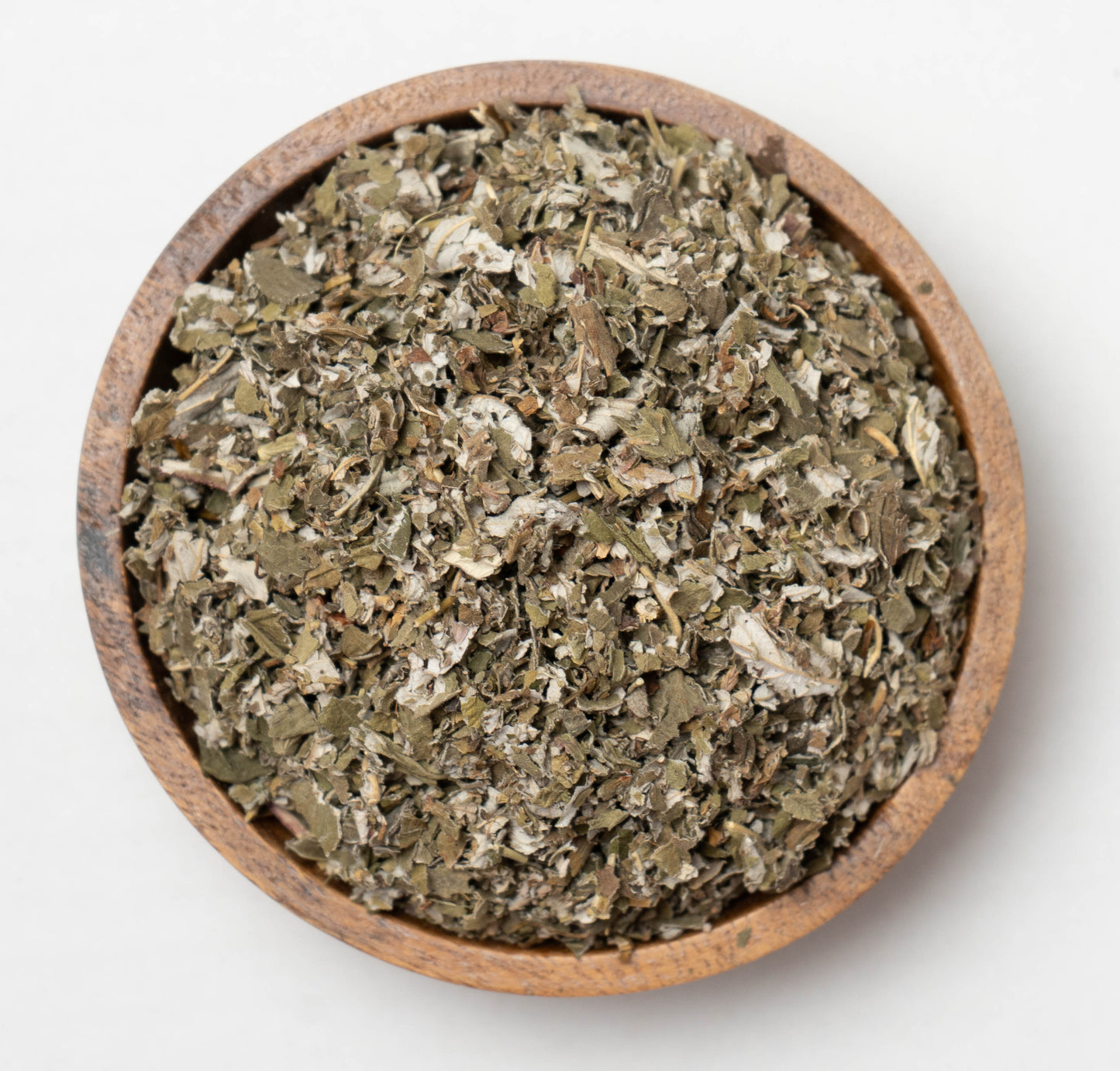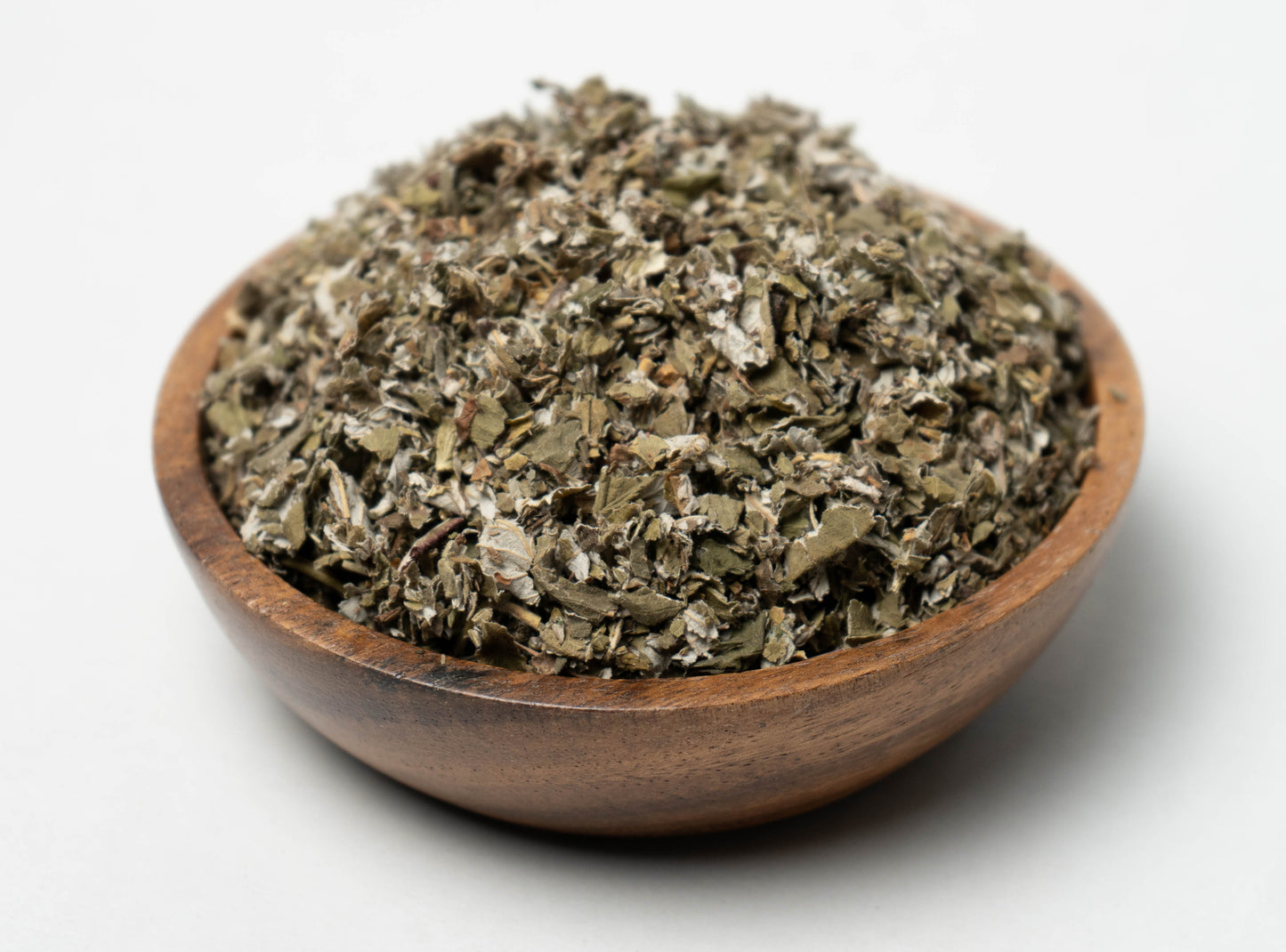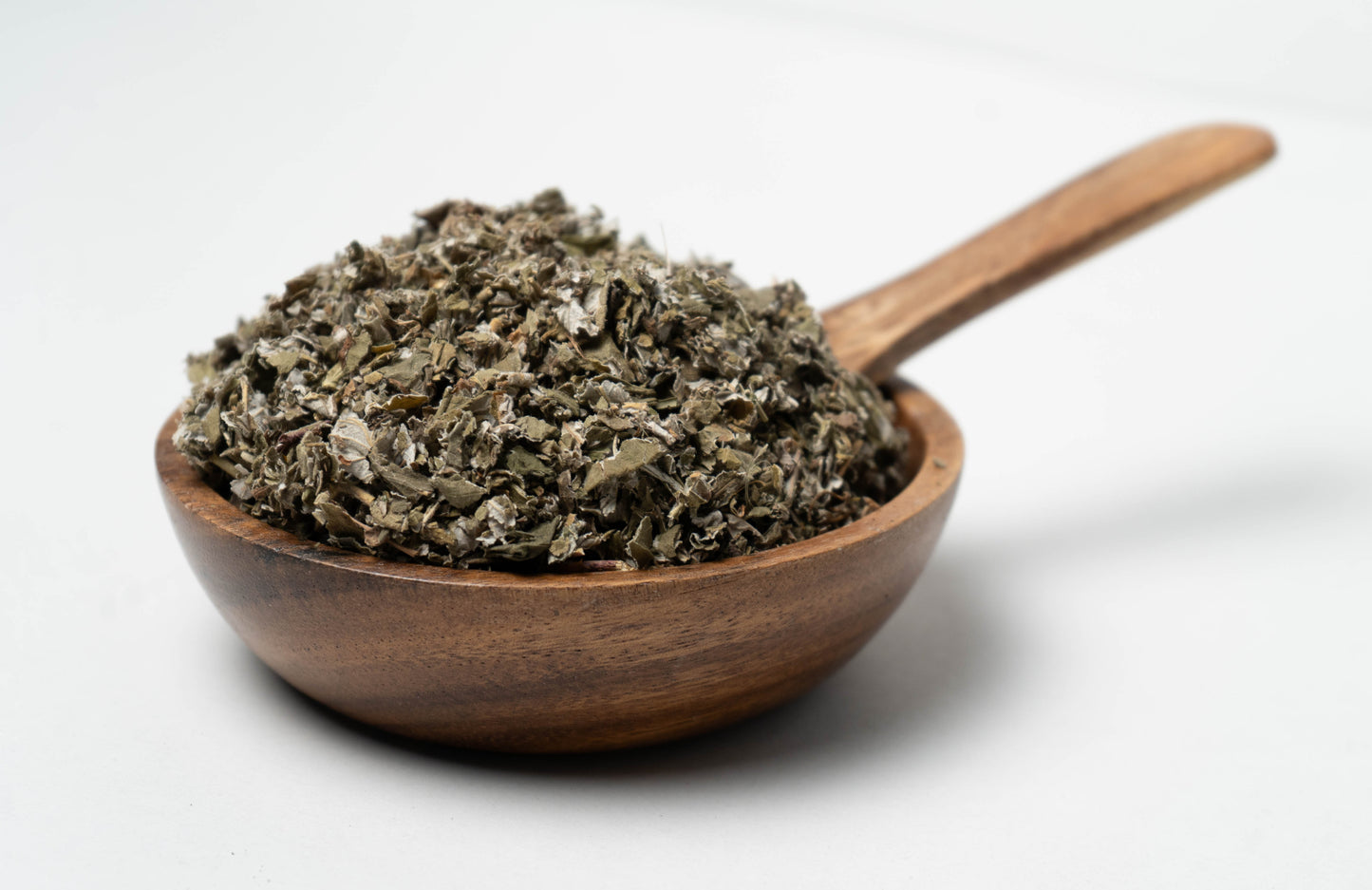Tropic Tranquility
Raspberry Leaf
Raspberry Leaf
Couldn't load pickup availability
Description
Raspberry leaf, also known as "Rubus idaeus," is an herb native to Europe that is now found in temperate regions around the world. The leaves of the raspberry plant have a long history of use in traditional medicine, particularly for supporting women's health.
Raspberry leaf contains several beneficial plant compounds, including tannins, flavonoids, and ellagic acid. These compounds are thought to have anti-inflammatory, antioxidant, and hormone-balancing effects.
Here are some of the common uses of raspberry leaf:
- Women's health: Raspberry leaf is often used to support women's health, particularly for menstrual cramps, heavy periods, and menopausal symptoms. The herb is thought to help balance hormones and support the uterus and reproductive system.
- Pregnancy and childbirth: Raspberry leaf is also commonly used during pregnancy and childbirth to support a healthy pregnancy and ease labor pains. The herb is thought to help tone the uterus and strengthen contractions, which can result in a quicker and smoother labor.
- Digestive health: Raspberry leaf has been traditionally used to help support digestive health, such as for diarrhea, stomach cramps, and other gastrointestinal conditions. The herb is thought to have anti-inflammatory and astringent properties that can soothe and support the digestive tract.
While raspberry leaf has several potential health benefits, it should be used with caution and under the guidance of a healthcare professional, particularly during pregnancy. Raspberry leaf may interact with certain medications and supplements, and may not be safe for women with certain medical conditions. As with any herbal remedy, it's always best to consult with a healthcare professional or certified herbalist before using raspberry leaf or any other herbal products.
Raspberry leaves are rich in several essential and non-essential vitamins and minerals. Here is a list of some of the nutrients found in raspberry leaves:
Essential Vitamins:
- Vitamin A
- Vitamin C
- Vitamin E
- Vitamin K
- Folic acid (Vitamin B9)
Essential Minerals:
- Calcium
- Iron
- Magnesium
- Manganese
- Potassium
- Phosphorus
- Zinc
Non-essential Vitamins:
- Vitamin B1 (Thiamin)
- Vitamin B2 (Riboflavin)
- Vitamin B3 (Niacin)
- Vitamin B6 (Pyridoxine)
- Choline
Non-essential Minerals:
- Copper
- Selenium
These vitamins and minerals are essential for overall health and wellbeing. For example, vitamin C is necessary for immune function and skin health, while calcium is essential for strong bones and teeth. Manganese is important for healthy metabolism and wound healing, while iron is necessary for healthy blood and energy production.
It's important to note that while raspberry leaf is generally considered safe and beneficial, it may interact with certain medications and supplements, and should not be used in high doses or during pregnancy without the guidance of a healthcare professional. As with any herbal remedy, it's always best to consult with a healthcare professional or certified herbalist before using raspberry leaf or any other herbal products.
A raspberry leaf bath is a therapeutic bath that uses raspberry leaf tea or essential oil to promote relaxation and support women's health. Here are the steps to create a raspberry leaf bath:
1. Brew raspberry leaf tea: To make a raspberry leaf tea bath, brew a strong pot of raspberry leaf tea by steeping 4-5 tea bags in a pot of boiling water for 10-15 minutes. Allow the tea to steep and cool to room temperature.
2. Fill the bathtub: Fill the bathtub with warm water, making sure the temperature is comfortable.
3. Add raspberry leaf tea: Add the cooled raspberry leaf tea to the bathtub, and swish the water around to distribute the tea evenly.
4. Add essential oils: If desired, add a few drops of raspberry leaf essential oil to the bathwater for added benefits. Be sure to choose a high-quality essential oil and dilute it properly before adding it to the bath.
5. Soak in the bath: Soak in the raspberry leaf bath for 20-30 minutes, allowing the tea and oils to absorb into your skin.
A raspberry leaf bath is often used to support women's health, particularly for menstrual cramps, heavy periods, and menopausal symptoms. The herb is thought to help balance hormones and support the uterus and reproductive system. Additionally, a warm bath is a great way to relax and reduce stress, which can also benefit overall health.
As with any herbal remedy, it's always best to consult with a healthcare professional or certified herbalist before using raspberry leaf or any other herbal products.
Yes, taking a raspberry leaf bath can provide many benefits for your body. The warm water of the bath can help to soothe muscles and promote relaxation, which can be helpful for women experiencing menstrual cramps or other discomforts associated with women's health. The raspberry leaf tea or essential oil added to the bathwater can be absorbed through your skin, allowing your body to benefit from the herb's anti-inflammatory, antioxidant, and hormone-balancing effects.
Raspberry leaf is also believed to have benefits for digestive health, which can be useful if you are experiencing bloating, cramping, or other gastrointestinal discomfort. In addition, a warm bath can help to promote healthy circulation, which can aid in reducing inflammation and promoting healing throughout the body.
It's important to note that while raspberry leaf is generally considered safe and beneficial, it may interact with certain medications and supplements, and should not be used in high doses or during pregnancy without the guidance of a healthcare professional. As with any herbal remedy, it's always best to consult with a healthcare professional or certified herbalist before using raspberry leaf or any other herbal products.
There is limited scientific evidence on the effectiveness of raspberry leaf tea for hair growth or health. While the tea contains antioxidants that may promote general well-being, there is no direct proof that it can improve hair growth or health.
It is worth noting that some people use raspberry leaf tea as a natural hair rinse or conditioner, as it may help to strengthen hair and reduce hair fall. However, it is important to consult with your healthcare provider before using herbal remedies or tea on your hair or skin.
It is also important to understand that healthy hair growth is influenced by multiple factors such as genetics, nutrition, stress, and overall health. Therefore, a balanced diet, regular exercise, stress management, and adequate sleep may be more effective in promoting healthy hair growth than just relying on one herbal tea or remedy.
*These statements have not been evaluated by the FDA. This product is not intended to diagnose, treat, cure or prevent any disease.
Share






